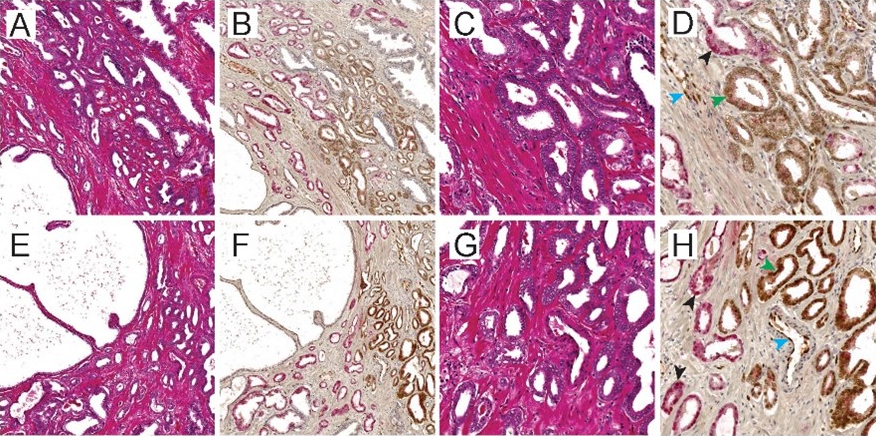Case ID:
HJF 641-23
Web Published:
4/5/2023
ETV1 is a protein of Erythroblast Transformation Specific (ETS) family of transcription factors. Dysregulation of ETV-1 has been observed in many malignancies including, gastrointestinal stromal (GIS), prostatic tumors, and in triple-negative breast cancer.
Researchers at Henry M. Jackson Foundation (HJF) and Uniformed Services University for Health Sciences (USU) have developed a novel rabbit monoclonal antibody (mAb) that selectively recognizes ETV1. It is suitable for detection of ETV1 in human tissue specimens. Such selectivity makes these mAbs valuable reagents, research tools, as diagnostic tools for aberrant expression of ETV1, and help stratify patients for treatment options in various cancers.
Applications and Advantages
- Highly specific to ETV1 protein, no cross-reactivity to other ETS factors
- Defined complimentary determining regions (CDR) and key residues recognized by the mAbs
- Validated for detecting ETV1 expression in human prostate tissue specimens by Immunohistochemistry (IHC) assay as a single reagent and in duplex IHC staining
- Hybridoma culture can be scaled-up to produce large quantities for diagnostic use
- A valuable reagent as a research tool to study ETV1 function
- Can potentially be conjugated to detection agents for use in clinical diagnostic imaging
- Amendable for development of a humanized mAb for potential therapeutic use
Innovation Description
The ETS family of transcription factors are proteins involved in copying of genetic information from DNA to RNA. They are characterized by the presence of a conserved DNA-binding domain (the ETS domain) and are known to have unique molecular and biological functions. Dysregulation of ETV-1 and its overexpression has been observed in GIST, oligodendromas, small round cell sarcomas, subsets of prostate cancer tumors, and in triple-negative breast cancer. Studies suggest a correlation between strong ETV1 protein expression and poor outcomes in these cancers. However, understanding of the oncogenic role of ETV1 has been limited by the lack of ETV1 specific antibodies. Researchers at HJF and USU have developed a novel rabbit mAb against ETV1 that is suitable for an IHC assay in human prostate tissue (Fig. 1). Efforts to validate detection of ETV1 in prostate cancer using specimens from independent patient cohorts as well as other cancers are in progress.

Fig. 1 Detection of ERG and ETV1 on a whole-mounted sections by duplex IHC. Green, blue, and black arrowheads indicate ERG (+) prostate epithelial cells, ERG (+) endothelial cells, and ETV1 ( +) prostate epithelial cells, respectively
Inventors
- Shyh-Han Tan, Ph.D., HJF
- Albert Dobi, Ph.D., HJF
- Shiv K. Srivastava, Ph.D., USU
Innovation Status
Further evaluation using tissue specimens from larger cohorts to establish the sensitivity and specificity of this antibody and validate the utility of ETV1 detection in improving the diagnosis and stratification of prostate and other cancers are in progress.
Intellectual Property Status
A provisional application has been filed.